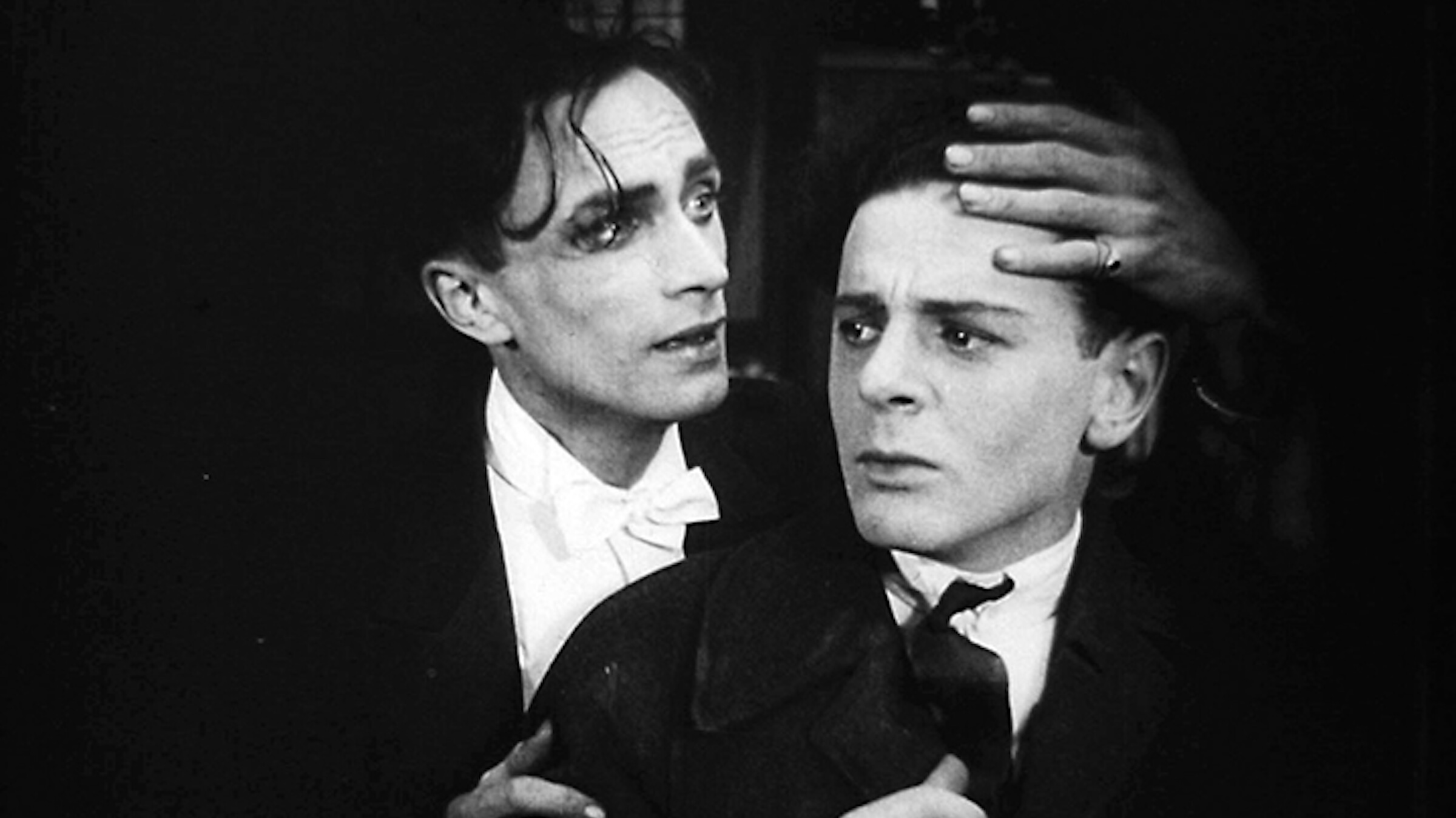Divisions always appear sharper in an election year, and this has been one for the history books. Among other stress points, the politicized atmosphere underlined how gay rights have found increasing popular (as well as legal) progressive embrace on the one hand, and ever-more-vehement conservative blowback on the other. While that high-profile ideological battle has been raging at least since the 1970s heyday of Gay Lib and foe Anita Bryant, it seems very up-to-the-moment terrain. You’d hardly guess that similar debates over homosexuality stirred widespread controversy a century ago. But in a postwar Weimar Republic in Germany reacting against the disastrous legacy of the kaisers, such radical thinking was—at least briefly—not just permitted but in some quarters quite fashionable.
Among champions of greater sexual freedom and tolerance few were more prominent than Magnus Hirschfeld, a Prussian-born physician whose interest in alternative medical treatments and viewpoints extended to publishing (albeit pseudonymously) a tract defending same-sex love in 1896. The next year, at thirty-one years of age, he cofounded the Scientific Humanitarian Committee. Its motto was “Through science to justice,” its agenda advocacy for greater understanding of sexual minorities and, specifically, to overturn Paragraph 175, which criminalized male homosexual acts as well as other perceived sexual aberrations.
In 1919, Hirschfeld opened the Institute for Sexual Research, which offered public education and counseling. That same year saw the release of Different from the Others (Anders als die Andern), a commercial narrative feature he cowrote and appeared in and that made an impassioned, very direct plea for 175’s repeal. It was the first movie to portray homosexual characters beyond the usual innuendo and ridicule.
Thought entirely lost for many decades, then recovered just in fragmentary form, Different remains a less-than-complete artifact. The Outfest UCLA Legacy Project’s new restoration, incorporating materials from numerous sources, is the most comprehensive version available in at least eighty years. But even it is missing whole characters, subplots, and scenes, including a set piece (glimpsed only in a surviving still) in which the protagonist imagines Da Vinci, Tchaikovsky, Ludwig II, Oscar Wilde, and other historical figures who suffered for their sexual orientation. Intertitles fill in many gaps left by footage unlikely ever to be found—the Nazis made a point of destroying all the prints they could lay their hands on after they came into power in 1933.
But then, Different from the Others had a rocky reception from the start. Most critics, and even a number of conspicuous medical, police, and government authorities, praised its artistry and good taste in dealing with what Hirschfeld termed “sexual intermediacy.” In the screenplay, cowritten by Hirschfeld and director Richard Oswald, Paul Körner (portrayed by Conrad Veidt whose stardom went international with the following year’s Cabinet of Dr. Caligari) is a successful concert violinist. His private torments come to the fore when he takes on an adoring young protégé (Fritz Schulz). Their close but chaste relationship is noticed by Paul’s old paramour (Reinhold Schünzel) who uses their shared “vice” as fodder for extortion.
Paul’s concerned family sends him to a “Physician and Sexologist,” played by Hirschfeld, who assures him in an intertitle that “Love for one’s own sex can be just as pure and noble as that for the opposite sex. This orientation is to be found among many respectable people in all levels of society.” But intellectual absolution alone can’t save our protagonist. He and his hypocritical accuser wind up in court. The resulting scandal leads to a tragic end that Vito Russo’s groundbreaking 1981 study The Celluloid Closet notes anticipated “the fate of screen gays for years to come.”
Different from the Others could hardly have been more direct in its plea for the abolishment of the 1871 law against homosexuality that had in fact led to uncountable instances of blackmail and suicide. Many authorities uncomfortable with homosexuality nonetheless agreed these latter scourges were gross injustices and that the film built an eloquent case against them.
Yet within fifteen months of its Berlin premiere, the feature was officially banned from public exhibition by the German government. Largely in response to Different, censorship laws whose abandonment had enabled its production in the first place were re-introduced in 1920. There had also been reports of scattered rioting and vandalism in theaters showing the film.
The year of its release also saw the founding of the nationalistic German Workers’ Party, whose followers eventually became better known as the Nazis. Their explicitly anti-Semitic message found a perfect target in Hirschfeld who was already much derided by right-wing moralists. While the doctor was a thoroughly modern secularist little attuned to the religious or cultural aspects of his family’s Jewish background, that ancestry was nonetheless a focal point for many detractors. The film was called “a feast for degenerates which could ruin German youth,” its chief sponsor an “Apostle of Sodomy” who was seldom described without comparisons to “swine.” As National Socialism gradually crushed the Weimar Republic, images of a Hirschfeld, hirsute and bulky, were used in Nazi propaganda to illustrate “the most repulsive of all Jewish monsters.”
For a time, however, his institute continued its advocacy work, despite the political tides rising against it. The favorable attention it drew from many quarters encompassed celebrity guests and visitors, including Soviet filmmaker Sergei Eisenstein as well as authors Walter Benjamin, Christopher Isherwood, André Gide, and W.H. Auden. Foreign scientists, physicians, and diplomats also paid tribute, many professing amazement that Different from the Others (which they were allowed to view at the Institute) had been so savagely treated. In 1927, Hirschfeld and Oswald attempted to overturn the film’s ban by creating a new version called The Laws of Love, from which the original’s already exceedingly mild expressions of physical love between men (as when Paul walks arm-in-arm with his protégé) were expunged. Even that watered-down repackaging couldn’t change German authorities’ minds.
As the 1930s dawned, Magnus Hirschfeld embarked on an extensive global lecture tour, despite poor health. The Nazis had only just seized power in early 1933 when the Institute was ransacked by marauding Hitler Youth. Much of what they didn’t immediately destroy was burnt several days later in a public bonfire; what remained from the priceless archives of sexual research and errata was largely auctioned off. While despondent at these losses, not to mention travel that had turned into permanent exile, Hirschfield mused, “If Germany doesn’t want me, I don’t want it either.”
Hirschfeld died in 1935 at age sixty-seven in Nice, France, no doubt fortunate to have avoided the deportation, imprisonment, and execution that greeted many of his compatriots. While once he’d come close to getting Paragraph 175 repealed, under the Nazis the law was actually expanded leading to the arrests of some 100,000 gay men, many of whom died in concentration camps. (San Franciscans Rob Epstein and Jeffrey Friedman’s 2000 documentary Paragraph 175 uses survivor testimonies to limn that long-overlooked historical chapter in detail.)
Berlin colleagues Hirschfeld had hoped could carry on and preserve his work were unable to do so. His principal assistant and life companion Karl Giese (who plays Paul’s younger self in Different) was driven to suicide during the war, and immediate postwar politics and academia had little place for Hirschfeld’s ideas about the Third Sex. Some of the latter now appear antiquated or simply wrongheaded. Yet others—including the now-rebounding notion that sexual preference is more biologically than psychologically rooted—proved remarkably prescient. Nonetheless, even the Sexual Revolution-launching bombshell of the Kinsey Reports did little to revive his stature, in part because so few of his voluminous writings had been translated from the German.
It wasn’t until well into the post-Stonewall era that the tide began to turn. A sole surviving partial print of Hirschfeld’s Different from the Others at Gosfilmofond in Moscow allowed its rediscovery as a forgotten milestone in LGBTQ culture. Likewise, Hirschfeld was resuscitated as a pioneering figure by emerging specialists in the new fields of gay history and gender studies. In 1999, radical German gay filmmaker Rosa von Praunheim released a biographical drama called The Einstein of Sex, its name drawn from promotional hyperbole used during Hirschfeld’s 1930–31 American lecture tour. Numerous organizations have sprung up in his honor, most recently the Magnus Hirschfield National Foundation, which was endowed by the German Federal Ministry of Justice to preserve his legacy, foster education, and promote tolerance towards sexual minorities.
One wonders what he’d think of today’s still sharply divided discourse about homosexuality—or the fact that despite the past half-century’s very liberal social climate in Germany, Paragraph 175 wasn’t voided outright until 1994. For better and worse, the words Hirschfeld speaks (via intertitle) in Different from the Others remain relevant almost a hundred years later:
[Homosexuality is] neither a vice nor a crime, indeed, not even an illness, but instead a variation, one of the borderline cases that occur frequently in nature. Your son suffers not from his condition, but rather from the false judgment of it. This is the legal and social condemnation of his feelings, along with widespread misconceptions about their expression …. The persecution of homosexuals belongs in the same sad chapter of human history in which persecution of heretics and witches is inscribed … [such laws] are a violation of the fundamental rights of the individual.
Different from the Others was preceded by Flashes of the Past: Review of Historic Events from 1910 to 1925
Presented at A Day of Silents 2016 with live music by Donald Sosin

